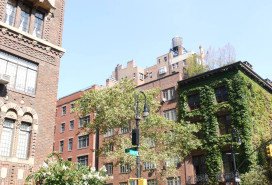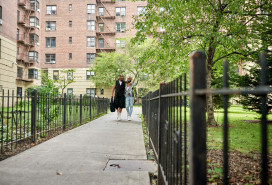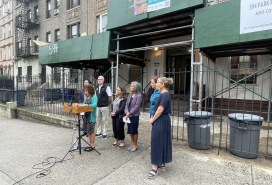Ask an Expert: I combined two co-op units, but didn't change the certificate of occupancy. Will this mess up my mortgage?

Q: I own two co-op units in Forest Hills that I’ve combined. We obtained all the necessary approvals and permits, but the board did not obtain a revised Certificate of Occupancy when the work was done. When I was refinancing a line of credit obtained on one of the units prior to the combination, my lender balked due to the fact that on the C of O, the two units are not combined. Is the co-op required to obtain an amended C of O for a combination? If so, how much will the process cost, and who pays for what?
A: A Certificate of Occupancy change may not be required for your combination, but whatever paperwork you may have missed when you combined your apartments, it's your job to make sure it gets taken care of, not the board's, say our experts. "Usually the obligation to make changes to cooperative’s Certificate of Occupancy is the obligation of the shareholder performing the unit combination," says Jeffrey S. Reich, an attorney with Wolf Haldenstein Adler Freeman & Herz LLP. "I’ve never heard of a co-op assuming any of the costs for filing plans and obtaining permits," adds real estate broker Shirley Hackel of Warburg Realty. "These are typically borne by the homeowner."
If your combination happened sometime after 1997, Hackel notes, it's likely that rather than needing a Certificate of Occupancy change, you may have had to file an Alteration Type II application (more details on that here). However, she notes, "a sign-off by a professional engineer or registered architect is required, along with a letter of completion by the DOB Borough Office." To determine exactly what paperwork was required (and what paperwork you might still be missing), consult an architect or expediter who's familiar with both city code and the details of your specific renovation, says Thomas Usztoke of Douglas Elliman Property Management.
As for your uneasy lender, they've got good cause for concern. "When the units were physically combined, so should the stock certificates and leases have been legally and formally combined," Usztoke explains. This would have given your lender the chance to agree to amend your mortgage to include the added co-op shares and space. "By failing to advise the lender of the substantial alteration, you may also be in conflict with your mortgage terms, potentially calling the original loan into default," he adds.
Aside from looking into the situation with your building's C of O, your top priority now is to transfer your apartments' stock certificates and leases and have them reissued as a single unit. "Talk to a senior loan advisor at the bank," Usztoke recommends. "They may be a great ally rather than an adversary in cleaning up the legalities of what they are financing." The cost for this process varies widely, and will depend on what, if any, new paperwork you need. But rest assured: You'll be the one paying, not the co-op.
Related:
Can I combine my two condos by putting a doorway in the closet?
How to finance a NYC apartment combination (sponsored)
NYC renovation chronicles: when that perfect combination is not
Is a neighbor buying another apartment in your co-op? What the board should ask at the interview
Trouble at home? Get your NYC apartment-dweller questions answered by an expert! Send us your questions.
See all Ask an Expert.



























